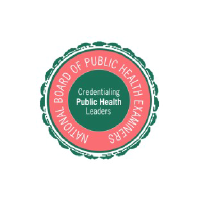NBPHE
Description
Credentialing Public Health Leaders. The Certified in Public Health is the mark of a public health professional. Demonstrate your knowledge of key public health sciences and join the ranks of public health leaders by sitting for and successfully passing the CPH exam. Distinguish yourself from your peers by showing employers that you can meet and maintain a national standard in public health through continuing education focused on emerging and established public health issues. Be the public health professional that the public needs. Be CPH certified.Reviews
No Reviews Yet
Be the first to review one of our webinars!

